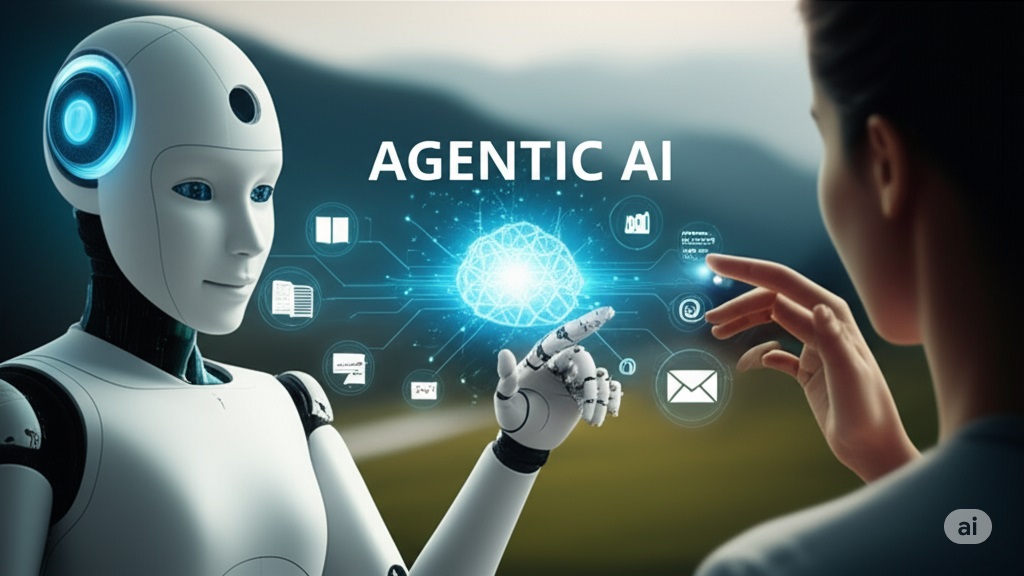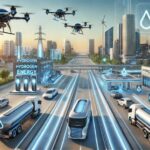Introduction
The rise of Agentic AI—self-improving, autonomous artificial intelligence—is transforming industries at an unprecedented pace. By 2025, these advanced algorithms will redefine healthcare diagnostics, personalized treatment, fraud detection, and algorithmic trading, making them faster, more accurate, and highly adaptive.
But what exactly is Agentic AI, and why is it a game-changer? This in-depth guide explores how self-learning AI systems are revolutionizing healthcare and finance, the ethical challenges they pose, and what businesses must do to stay ahead.
What Is Agentic AI?
Agentic AI refers to autonomous systems capable of self-improvement through continuous learning, decision-making, and execution without human intervention. Unlike traditional AI, which follows predefined rules, Agentic AI adapts in real-time, optimizing its performance based on new data.
Key Features of Agentic AI:
✅ Self-Optimization – Continuously refines its algorithms for better outcomes.
✅ Autonomous Decision-Making – Operates independently within set boundaries.
✅ Adaptive Learning – Evolves by analyzing real-world interactions.
✅ Multi-Agent Collaboration – Multiple AI agents work together to solve complex problems.
With these capabilities, Agentic AI is set to disrupt healthcare and finance by 2025.
Agentic AI in Healthcare: A 2025 Revolution
The healthcare sector is undergoing a radical shift thanks to self-improving AI. Here’s how:
1. Hyper-Personalized Medicine
Agentic AI analyzes genomic data, lifestyle factors, and real-time health metrics to create tailored treatment plans. By 2025, AI-driven diagnostics will predict diseases before symptoms appear, drastically improving prevention strategies.
🔬 Example: AI systems like DeepMind Health already assist in detecting diabetic retinopathy and cancer earlier than human doctors.
2. Autonomous Robotic Surgery
Self-learning surgical robots, such as Intuitive Surgical’s da Vinci system, are becoming more precise. By 2025, Agentic AI will enable fully autonomous surgeries with near-zero error rates, reducing recovery times and complications.
3. Drug Discovery & Development
Traditional drug development takes 10+ years and billions of dollars. Agentic AI accelerates this by simulating molecular interactions and predicting successful compounds in months, not years.
💊 Case Study:
- Insilico Medicine used AI to design a fibrosis drug in just 18 months (vs. 5+ years traditionally).
4. AI-Powered Mental Health Assistants
Chatbots like Woebot already provide cognitive behavioral therapy. By 2025, Agentic AI will offer emotionally intelligent, real-time mental health support, reducing the global therapist shortage.
Agentic AI in Finance: The 2025 Disruption
The financial sector is leveraging Agentic AI for fraud prevention, trading, and risk management.
1. Algorithmic Trading at Light Speed
High-frequency trading (HFT) firms use AI to execute trades in microseconds. By 2025, Agentic AI will predict market shifts and self-optimize strategies in real-time, outperforming human traders.
📈 Example:
- Renaissance Technologies’ Medallion Fund uses AI to achieve 66% annual returns (vs. S&P 500’s ~10%).
2. Fraud Detection & Prevention
Banks lose $40+ billion annually to fraud. Agentic AI detects anomalous transactions with 99.9% accuracy, stopping cybercriminals before they strike.
🔐 Case Study:
- Mastercard’s AI system reduced false declines by 30%, saving billions in lost revenue.
3. Autonomous Financial Advisors (Robo-Advisors)
By 2025, 90% of wealth management could be AI-driven. Platforms like Betterment and Wealthfront already manage $1T+ in assets—Agentic AI will make them even smarter.
4. Credit Scoring & Loan Approvals
Traditional credit scoring excludes 2 billion unbanked adults. Agentic AI analyzes alternative data (social media, utility payments) to offer fairer, real-time credit decisions.
Ethical & Regulatory Challenges
Despite its benefits, Agentic AI poses risks:
⚠️ Bias & Discrimination – AI may inherit biases from training data.
⚠️ Job Displacement – 40% of finance jobs could be automated by 2025.
⚠️ Security Risks – Hackers could manipulate autonomous AI.
How to Mitigate Risks?
🔹 Transparent AI Governance – Regulators must enforce explainable AI standards.
🔹 Human-in-the-Loop (HITL) – Critical decisions should require human oversight.
🔹 Ethical AI Training – Developers must eliminate bias in datasets.
The Future of Agentic AI (Beyond 2025)
- AI Legislators – Self-governing AI may draft policies.
- AI-Driven Governments – Estonia already uses AI for 95% of bureaucratic tasks.
- General AI (AGI) – The next frontier: AI matching human intelligence.
Conclusion: Is Agentic AI the Future?
By 2025, Agentic AI will dominate healthcare and finance, delivering faster diagnoses, smarter investments, and autonomous decision-making. However, businesses must adopt ethical frameworks to ensure AI benefits society.


